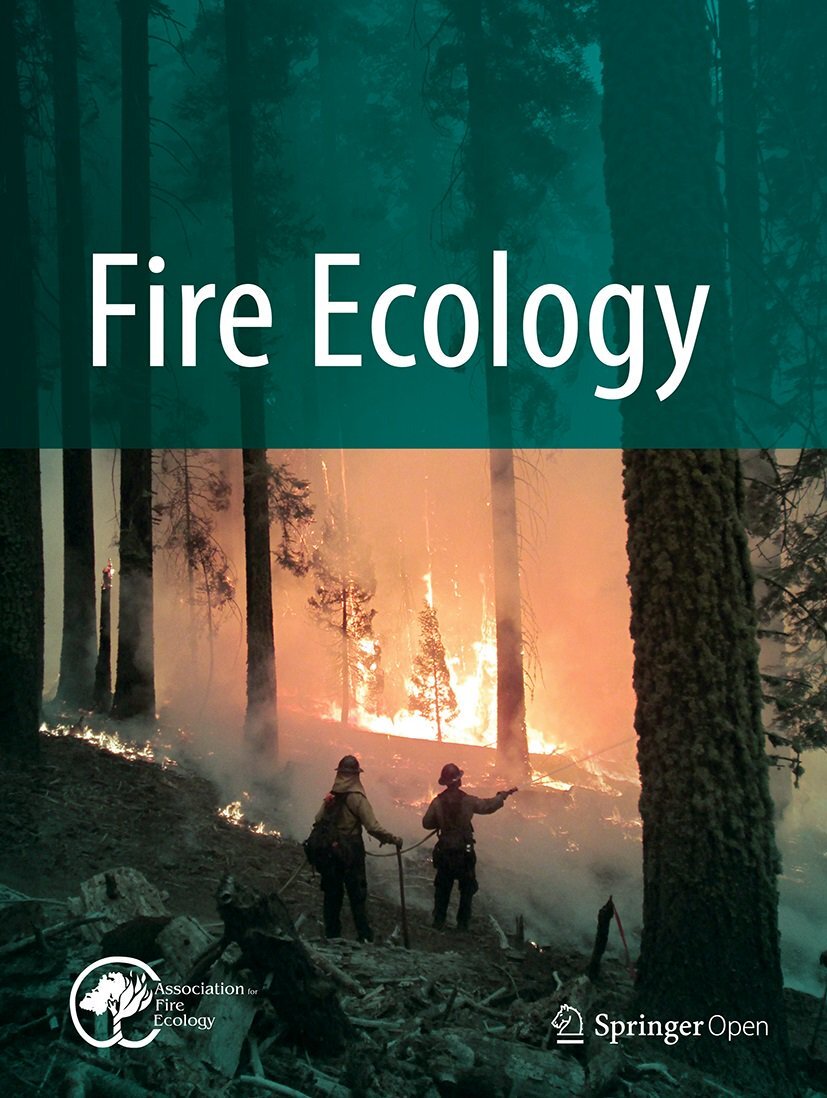Forest landowner values and perspectives of prescribed fire in the Northeast/Mid-Atlantic region of the United States
IF 5
3区 环境科学与生态学
Q1 ECOLOGY
引用次数: 0
Abstract
Fire is an important ecological process that shapes structures and compositions in many ecosystems worldwide. Changes in climate, land use, and long-term fire exclusion have altered historic fire regimes often leading to more intense and severe wildfires and loss of biodiversity. There is an increasing interest by resource managers to reintroduce fire in historically fire-dependent ecosystems while enhancing the provision of ecosystem services. Restoring fire, however, is complicated by a diverse mix of public and private land ownerships in regions like the Northeast/Mid-Atlantic US, where private lands make up the majority (~ 70%) but prescribed burning is less common. To help inform policies that promote prescribed burning on private lands, we conducted a regional survey of forest landowners regarding their perspectives and willingness to pay (WTP) for prescribed fire as a management tool. We also used spatial hotspot analysis to detect regional variations in landowner opinions. Respondents had limited knowledge and experience with burning overall, but many also perceived fire as a low-risk tool and were trusting of burning professionals. Most landowners (64%) expressed interest in a variety of prescribed fire programs to help achieve management outcomes. Preferred outcomes include protecting forest health, controlling invasive species, and wildlife habitat. Also significant in explaining landowner choices were economic (e.g., cost of burning), governance (e.g., state coordination, cost-share assistance, and access to consultants), and demographic factors. According to two models, the mean WTP for the prescribed fire was $10 ha−1 and $40 ha−1 ($4 ac−1 and $16 ac−1) but could be as high as $220 ha−1 ($89 ac−1) for specific outcomes and programs. Spatial analysis revealed a north–south gradient in landowner opinions across the region, with opinions about burning more positive in the south. Pennsylvania landowners were unique within our study in that they placed the highest economic value on prescribed fire, despite having limited knowledge and experience. There is significant support by landowners to use prescribed fire to achieve management objectives on private lands in the Northeast/Mid-Atlantic region. Pennsylvania landowners, in particular, were strongly motivated to use prescribed fire; however, knowledge and experience are severely limited. Education, technical support, financial assistance, and access to professionals will be important for helping landowners use prescribed fire to achieve management objectives.美国东北部/大西洋中部地区林地所有者对处方火的价值观和看法
火灾是一个重要的生态过程,它塑造了全球许多生态系统的结构和组成。气候、土地利用和长期禁火的变化改变了历史上的火灾机制,往往导致更猛烈、更严重的野火和生物多样性的丧失。资源管理者越来越希望在历史上依赖火的生态系统中重新引入火,同时加强生态系统服务的提供。然而,在美国东北部/大西洋中部等地区,公有土地和私有土地所有权的多样化组合使恢复火灾变得复杂,在这些地区,私有土地占大多数(约 70%),但规定燃烧却不常见。为了帮助制定促进在私人土地上进行规定火烧的政策,我们对林地所有者进行了一项区域调查,了解他们对规定火烧这种管理工具的看法和支付意愿(WTP)。我们还使用了空间热点分析来检测土地所有者意见的地区差异。总体而言,受访者对火烧的了解和经验有限,但许多人也认为火烧是一种低风险工具,并信任火烧专业人员。大多数土地所有者(64%)表示对各种规定火种计划感兴趣,以帮助实现管理成果。首选成果包括保护森林健康、控制入侵物种和野生动物栖息地。在解释土地所有者的选择时,经济因素(如燃烧成本)、管理因素(如国家协调、成本分担援助和获得顾问服务的机会)和人口因素也很重要。根据两个模型,处方火的平均 WTP 为 10 美元公顷-1 和 40 美元公顷-1(4 美元英亩-1 和 16 美元英亩-1),但对于特定的结果和项目,可能高达 220 美元公顷-1(89 美元英亩-1)。空间分析表明,整个地区的土地所有者的意见呈南北梯度分布,南部的土地所有者对燃烧的意见更为积极。宾夕法尼亚州的土地所有者在我们的研究中是独一无二的,尽管他们的知识和经验有限,但他们对规定火种的经济价值评价最高。土地所有者非常支持在东北/中大西洋地区的私有土地上使用明火来实现管理目标。尤其是宾夕法尼亚州的土地所有者,他们使用明火的积极性很高,但知识和经验却非常有限。教育、技术支持、资金援助以及与专业人士的联系对于帮助土地所有者使用明火实现管理目标非常重要。
本文章由计算机程序翻译,如有差异,请以英文原文为准。
求助全文
约1分钟内获得全文
求助全文
来源期刊

Fire Ecology
ECOLOGY-FORESTRY
CiteScore
6.20
自引率
7.80%
发文量
24
审稿时长
20 weeks
期刊介绍:
Fire Ecology is the international scientific journal supported by the Association for Fire Ecology. Fire Ecology publishes peer-reviewed articles on all ecological and management aspects relating to wildland fire. We welcome submissions on topics that include a broad range of research on the ecological relationships of fire to its environment, including, but not limited to:
Ecology (physical and biological fire effects, fire regimes, etc.)
Social science (geography, sociology, anthropology, etc.)
Fuel
Fire science and modeling
Planning and risk management
Law and policy
Fire management
Inter- or cross-disciplinary fire-related topics
Technology transfer products.
 求助内容:
求助内容: 应助结果提醒方式:
应助结果提醒方式:


